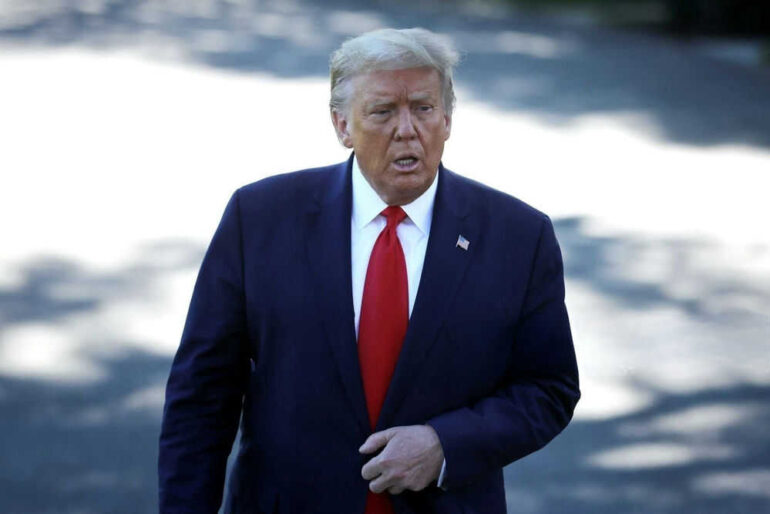🔴 Website 👉 https://u-s-news.com/
Telegram 👉 https://t.me/usnewscom_channel
(LibertySociety.com) – Jury selection chaos, a self-represented defendant, and echoes of American political violence converge in the courtroom, raising the question: can justice prevail when the system itself is on trial?
Story Snapshot
- Jury selection in the Ryan Routh trial, accused of attempting to assassinate Donald Trump, faces unprecedented delays and disruption.
- Routh, representing himself, tests the limits of courtroom order and fair trial rights in a case with national security implications.
- The Secret Service’s actions and federal protocols for protecting political figures come under fresh scrutiny.
- The outcome could redefine legal and security precedents in the era of political polarization.
Jury Selection Turmoil Exposes the System’s Weak Points
Jury selection for Ryan Routh’s trial, the man accused of plotting to assassinate Donald Trump at a Florida golf club, has quickly devolved into a spectacle. The process began on September 8, 2025, and has been anything but routine, potential jurors visibly uncomfortable, attorneys sparring over every question, and the presiding judge forced to repeatedly restore order amid Routh’s unpredictable interventions. The press gallery is packed, reflecting the gravity and notoriety of the case, but the room’s tension is palpable. The court’s struggle to find impartial jurors who don’t already have strong views on Trump or the case itself stretches the process into uncharted territory.
Routh’s decision to act as his own attorney only compounds the chaos. Legal experts watching the proceedings are quick to point out the difficulties: self-representation in a case involving explosive allegations, multiple federal charges, and the potential for a life sentence is a recipe for confusion and delay. The court’s responsibility to maintain fairness is tested each time Routh files another bizarre motion or demands a witness list that includes high-profile political figures and controversial personalities. The judge’s repeated denials of these requests underline the fine line between a defendant’s rights and the need for a manageable, credible trial.
The Anatomy of an Alleged Plot: Planning, Motive, and Security Gaps
Federal prosecutors allege that Routh’s plan was months in the making. After a previous attempt on Trump’s life in Butler, Pennsylvania, Routh reportedly began scouring the internet for weapons and tracking Trump’s schedule with unsettling determination. By August 2024, he was allegedly attempting to buy anti-aircraft weaponry online, convinced he was dealing with a Ukrainian arms dealer. The culmination came on September 15, 2024. Routh, camouflaged and armed with a rifle, waited near a fairway at Trump’s West Palm Beach golf club. A sharp-eyed Secret Service agent spotted him, fired, and triggered a chase that ended with Routh’s arrest after a brief pursuit. The incident not only averted potential tragedy but also reignited debate over the adequacy of protection for political leaders during a volatile election season.
Prosecutors argue that Routh’s motivations were rooted in a desire to prevent Trump’s return to office, painting a picture of political grievance escalating into violence. Defense filings, however, suggest a more erratic, perhaps unstable, mindset, a factor the court must weigh without allowing proceedings to spiral into a circus. The case’s unusual elements, especially Routh’s self-representation and frequent legal outbursts, have forced the judge to walk a tightrope between maintaining order and safeguarding due process.
Broader Implications: Security, Precedent, and the Politics of Violence
The Routh trial is about more than one man’s alleged actions; it is a referendum on the state of American political discourse and the resilience of its institutions. The Secret Service’s quick response draws praise from some quarters, but others express concern about evolving threats and the challenges of defending high-profile figures in an age of instant information and deep polarization. Legal commentators warn that the trial could set new standards for how self-represented defendants are managed in federal court, especially in cases with national implications and substantial media coverage.
Jury selection off to rocky start in case of man accused of trying to kill Trump – ABC News https://t.co/6ORqbSt1DP
— Fernando Oliver, Esq. (@Fernand46357857) September 8, 2025
The outcome of this trial could ripple far beyond the courtroom. A conviction may reinforce confidence in federal protections and legal processes, while an acquittal or mistrial would raise uncomfortable questions about the ability of the justice system to function under extreme political pressure. For Trump, his campaign, and his supporters, the proceedings are a stark reminder of the risks attached to political prominence. For the legal and law enforcement communities, the case is a stress test, one that may drive changes in how candidate security and high-profile prosecutions are handled in the future.
Copyright 2025, LibertySociety.com .
This content is courtesy of, and owned and copyrighted by, https://libertysociety.com and its author. This content is made available by use of the public RSS feed offered by the host site and is used for educational purposes only. If you are the author or represent the host site and would like this content removed now and in the future, please contact USSANews.com using the email address in the Contact page found in the website menu.

